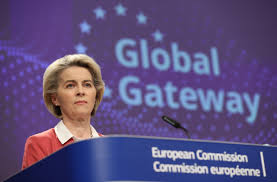EU eyes more pragmatic enlargement approach

Brussels: After the political pledge that EU enlargement will remain one of the “top priorities” of the new European Commission, the focus is slowly moving towards the actual next steps.
A key question for the coming months will be whether the negotiation process is still adequate for the needs of the current geopolitical times.
After only five negotiating chapters in total have been closed in the past decade – each accession country has 35 chapters to negotiate before joining – there has been a growing realisation that stagnation would not be ideal for the enlargement process.
While the ‘merit-based’ approach to enlargement is unlikely to be cast aside, and unanimity for the start and conclusion of accession talks will be retained, a more rapid opening of negotiation chapters has been floated in Brussels.
“The process is merit-based, and democracy and rule of law will remain its backbone. But if candidates deliver, I want to match their efforts,” Enlargement Commissioner Marta Kos told a forum earlier this week. She pledged to work to “advance the process as quickly and efficiently as possible”.
With the Western Balkans, EU officials now increasingly see a realistic chance to actually move things forward.
Montenegro and Albania, in particular, seem to have better prospects of joining the EU in the coming years under a new, more pragmatic approach.
EU officials say they hope to have up to three more Intergovernmental Conferences (IGC) by the end of this year, including with Montenegro, which could see several of its negotiation chapters closed.
Ukraine – and possibly Moldova – could see progress next year with the opening of the ‘fundamentals’ cluster in the first half of 2025, probably in April or May.
Other candidate countries could still prove more challenging.
Talks with North Macedonia are likely to remain stalemated over objections to amend its constitution. Bosnia and Herzegovina is stuck as progress has been made conditional on the country first completing a number of reforms.
Serbia might have a tough time, with a lack of alignment with the bloc’s foreign policy and concerns over the rule of law stalling Belgrade’s progress, despite Hungary’s push to move forward under its presidency.
Georgia, meanwhile, is drifting in the opposite direction.
However, the speed at which enlargement moves forward and for whom will come down to the willingness of EU capitals.
Enlargement Commissioner Marta Kos has said she intends to make the case that enlargement and the opening and closing of chapters should be the success of EU member states, not only the EU.
It will be likely Kos’ biggest challenge to secure the commitment of all EU member states to avoid further delays.
A key for this will be the next two rotating EU presidencies – Poland and Denmark – where diplomats have already voiced their intention to drive enlargement forward.





